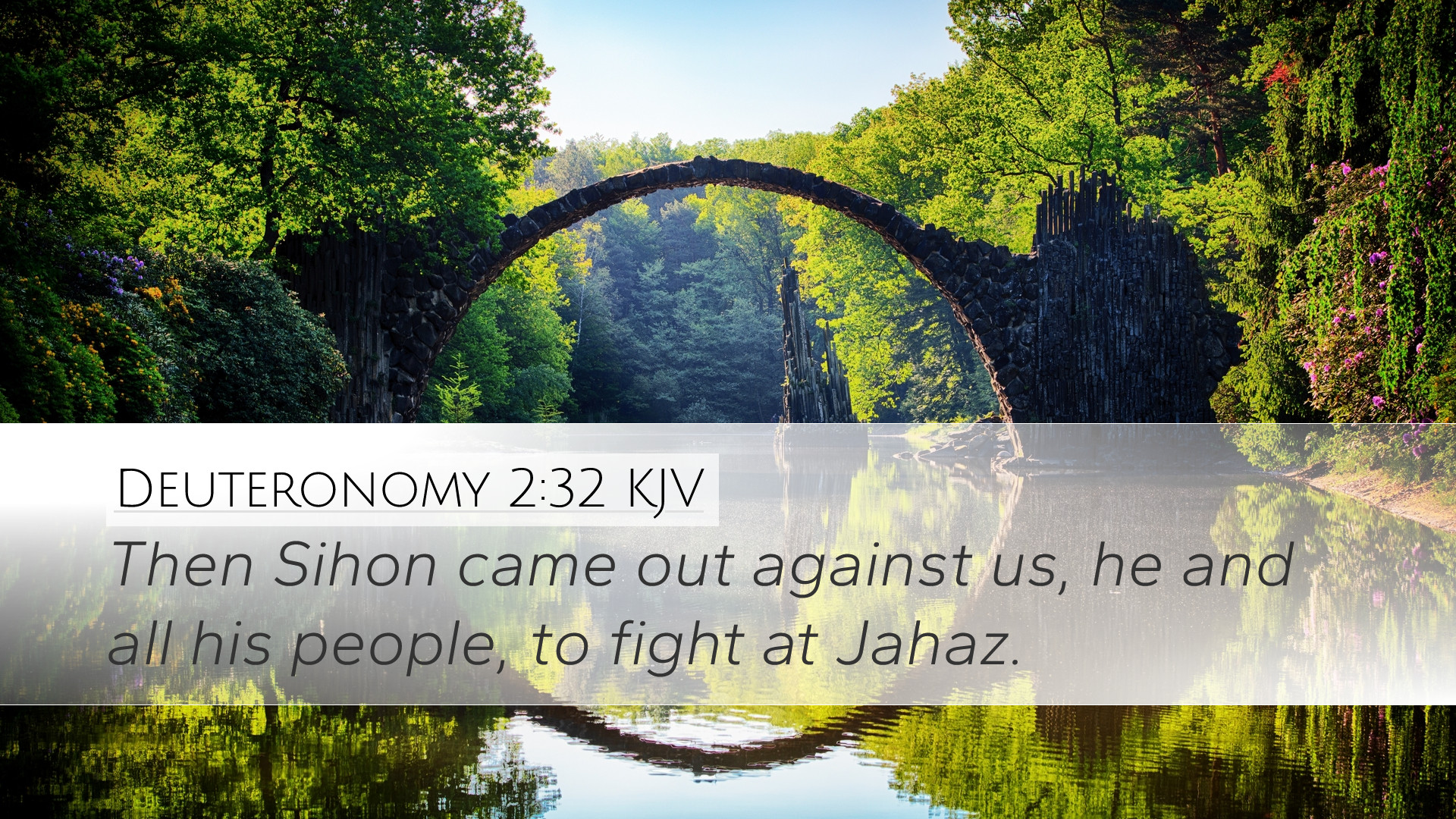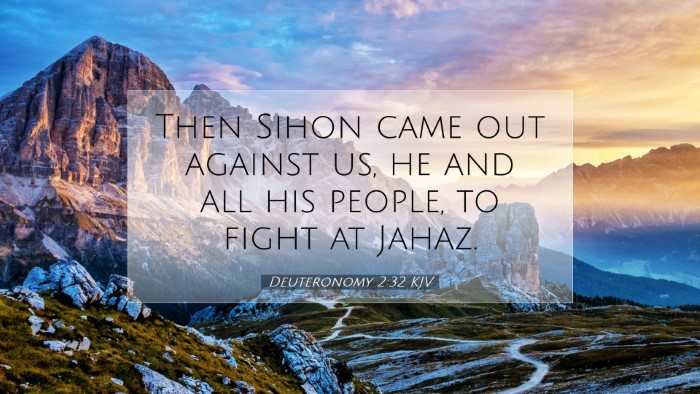Commentary on Deuteronomy 2:32
Verse: "Then Sihon came out against us, he and all his people, to fight at Jahaz." (Deuteronomy 2:32)
Introduction
The verse in Deuteronomy 2:32 marks a significant moment in the history of Israel's journey to the Promised Land. The conflict with Sihon, the king of the Amorites, exemplifies the larger theme of divine providence and the execution of God's sovereign plan through Israel's victories. This commentary synthesizes insights from various public domain sources to provide a comprehensive understanding of the verse's theological and historical implications.
Contextual Background
Deuteronomy is a final address by Moses to the Israelites before they enter Canaan, summarizing their journey and reiterating the covenant obligations. The mention of Sihon represents a crucial phase in Israel's transition from wanderers to conquerors.
The Encounter with Sihon
According to Matthew Henry, this encounter reflects God's hand in appointing the times and moments of confrontations that Israel would face. Sihon’s willingness to fight emphasizes the active opposition encountered in the quest for the promised land. This underlines the necessity of relying on divine assistance in the face of formidable adversaries.
Sihon's Character and Rule
Albert Barnes elaborates on Sihon’s aggressive nature, suggesting that he symbolizes the spiritual battles Christians face. Sihon's refusal to allow Israel passage (see Deuteronomy 2:30) indicates a stubborn pride and a desire to obstruct God’s people, reflecting a broader spiritual truth of opposition to God’s purposes in the world.
Theological Implications
In this confrontation, Adam Clarke notes a theological lesson about faith and obedience. This battle serves as a test for Israel's faithfulness to God’s commands. It illustrates how God empowers His people in their endeavors when they are faithful to His calling. The promise of victory is tied to Israel's reliance upon divine strength rather than their own.
Analysis of the Battle at Jahaz
The location of Jahaz as the battlefield is significant. It not only serves as a geographical note but also as a reminder of the spiritual and physical warfare faced by believers. The act of engaging in battle symbolizes the struggle against sin and opposition.
Symbolism of Jahaz
According to Matthew Henry, Jahaz can be interpreted as a place of remembrance—a site where God's deliverance is manifest. The victories won there are monumental in establishing Israel's identity as a nation chosen by God. It serves as a reminder to future generations of God's faithfulness and power.
Lessons for Believers
Deuteronomy 2:32 offers timeless lessons applicable to the lives of pastors, students, and theologians today.
- God's Sovereignty: The narrative confirms God's sovereign control over nations and kingdoms. Sihon's opposition was permitted by God to demonstrate His might.
- Preparation for Battle: Just as Israel was called to readiness, believers today are encouraged to be spiritually prepared to face challenges (Ephesians 6:10-18).
- Divine Assistance: The victory over Sihon reassures that God fights on behalf of those who follow Him, encouraging faith during difficult times.
Conclusion
Deuteronomy 2:32, while a brief account of a specific historical event, encapsulates profound themes of divine providence, spiritual warfare, and the importance of faithfulness. It serves as an enduring reminder of God's commitment to His people and the battles they must endure as they pursue their calling. The insights gleaned from public domain commentaries enrich our understanding and compel us to reflect on our own spiritual journeys as we navigate the challenges of faith.


